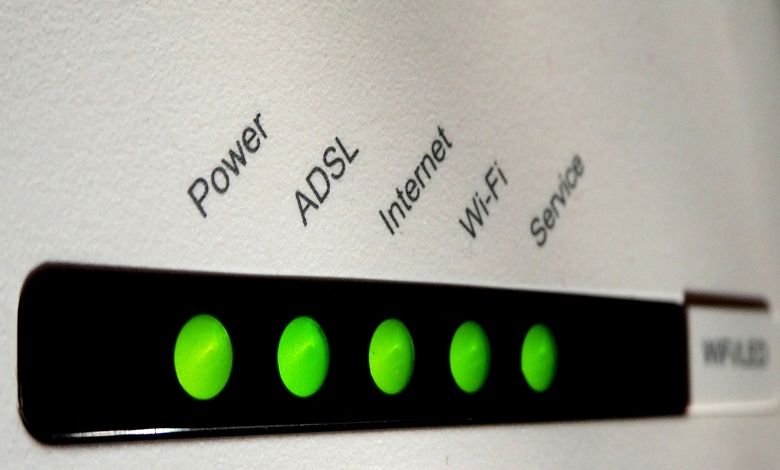Discover what Spectrum approved modems will do for symmetrical networks and how they enhance your internet speed for work and play.
Let’s talk about internet speed for working from home—it’s one of those little things that really makes a big difference in our digital lives.
If you’re anything like me, you probably started out thinking that as long as it loads, that’s good enough.
But here’s the deal: once you start using the internet for more than just casual browsing, speed, especially upload speed, becomes really important.
For gamers, streamers, remote workers, or anyone who deals with big files every day, the best kind of internet for working from home is a symmetrical network.
This setup gives you equal upload and download speeds, which makes it super easy to upload videos, stream without lag, or transfer files in just seconds.
But with providers like Spectrum, getting these symmetrical speeds isn’t always straightforward.
Spectrum-approved modems have a lot of different features, but picking one that can support symmetrical or faster upload speeds can be tricky.
In this article, I’m going to walk you through what you need to know about Spectrum-approved modems, how they support (or don’t support) symmetrical networks, and I’ll provide a list of the best options to help you get the most out of your network.
Let’s jump in.
Article Breakdown
What Are Symmetrical Networks, and Why Do They Matter?

Before we dive into the nitty-gritty, let’s quickly clarify what a symmetrical network is. In most traditional setups, download speeds are significantly higher than upload speeds—this is called an asymmetrical network. For casual browsing or streaming, it works fine. But if you’re uploading large files, hosting video calls, or gaming, that upload speed becomes crucial.
Here’s a relatable example: Imagine having a bucket of water that you’re trying to fill with a garden hose. If the hose is too thin, it’ll take forever to fill the bucket, even if the water pressure on the other end is strong. In a similar way, if your upload speed (hose) is too slow, transferring files or streaming content out takes longer. A symmetrical network solves this issue by giving you a wider “hose” for uploads, matching your download speed.
Spectrum, like many ISPs, offers limited options for symmetrical speeds, but with the right equipment—namely, the right modem—you can come close. Let’s break down what modems Spectrum approves and which ones offer the best support for higher upload speeds.
The Top Spectrum-Approved Modems for Symmetrical Networks
Here’s a curated list of Spectrum-approved modems that can give you a significant boost in upload speeds. Although true symmetry (equal upload and download) may be rare, these models are equipped to maximize your connection’s efficiency.
- Netgear Nighthawk CM1200 — This DOCSIS 3.1 modem offers fast upload speeds and is optimized for heavy use, making it ideal for gamers and streamers who need consistent, high-performance connectivity.
- Arris SURFboard SB8200 — Known for its reliability, this modem supports higher upload speeds on Spectrum’s network with DOCSIS 3.1 technology, making it a great choice for households with multiple connected devices.
- Motorola MB8600 — Designed for long-term performance, this DOCSIS 3.1 modem handles multi-gigabit speeds, providing powerful upload support for users pushing for maximum upload efficiency on Spectrum.
- Netgear Nighthawk CM2000 — Built for speed and stability, the CM2000 modem is ideal for heavy bandwidth users, especially those who need balanced performance for activities like remote work, video conferencing, and streaming.
- Arris SURFboard T25 — Offering both cable and voice support, the T25 is a versatile choice that’s compatible with Spectrum Voice service and provides reliable upload performance on Spectrum’s network.
These modems are all DOCSIS 3.1-certified, a must for maximizing upload speeds on Spectrum’s infrastructure. While they may not provide true symmetrical speeds, they offer the closest performance available with Spectrum’s service, enabling smoother upload experiences for high-bandwidth users.
Understanding Spectrum’s Network Limitations
Here’s where we get into some important details that might surprise you. While having a powerful modem can help optimize your connection, Spectrum’s infrastructure isn’t typically built for symmetrical speeds. Their standard offerings are asymmetric, with download speeds prioritized.
- Network Infrastructure: Spectrum’s network is based on cable internet, which naturally favors download speeds. Unlike fiber-optic connections (such as those from some other ISPs), cable networks are inherently limited in providing equal upload and download speeds.
- DOCSIS 3.1 Protocol: Modems that use DOCSIS 3.1 technology (like the ones listed above) have a better chance of increasing upload speeds. While they won’t make your connection fully symmetrical, they do allow for more efficient data transfer, reducing lag and boosting upload capacity.
Pro Tip: If you’re on Spectrum and craving symmetrical speeds, you may want to contact them about their available fiber options. They do offer some fiber-based plans in select areas, which support symmetrical speeds.
Comparative Table of Spectrum-Approved Modems
To make things easy, here’s a quick comparison of the modems mentioned above, focusing on the features that matter most:
| Modem | DOCSIS Version | Max Download Speed | Max Upload Speed | Price Range | Recommended For |
| Netgear Nighthawk CM1200 | 3.1 | Up to 2 Gbps | High | $150-$180 | Gaming/Streaming |
| Arris SURFboard SB8200 | 3.1 | Up to 2 Gbps | High | $100-$130 | Large Households |
| Motorola MB8600 | 3.1 | Up to 3.8 Gbps | Very High | $150-$170 | Tech Enthusiasts |
| Netgear Nighthawk CM2000 | 3.1 | Up to 2.5 Gbps | High | $220-$250 | Remote Workers/Streamers |
| Arris SURFboard T25 | 3.1 | Up to 2 Gbps | High | $160-$200 | Voice-Enabled Setup |
Additional Considerations for Optimizing Upload Speeds
If symmetrical speeds aren’t fully attainable, maximizing your upload speed is the next best thing. Here are a few additional tips:
- Position Your Modem Strategically: Keep your modem in a central, open location for the best signal.
- Upgrade Your Plan: Spectrum offers higher upload limits on their top-tier plans, so if upload speed is a priority, it may be worth considering an upgrade.
- Regularly Update Firmware: Firmware updates can optimize your modem’s performance and help handle high upload demands better.
Frequently Asked Questions (FAQs)
Does Spectrum support fully symmetrical speeds?
Typically, no. Spectrum’s standard plans are asymmetrical. However, in certain areas, Spectrum is rolling out fiber options that support symmetrical speeds.
Why is upload speed important?
Upload speed affects how quickly you can transfer files, participate in video calls without lag, and share data online. For gamers and streamers, it’s crucial for smooth performance.
Is DOCSIS 3.1 necessary?
While DOCSIS 3.0 modems are still functional, DOCSIS 3.1 offers better upload speeds and is more future-proof for handling high-bandwidth activities.
Upgrading My Modem Was The Best Decision For Uninterrupted Work
I started out with a basic modem that came from my ISP, and I’ll admit—I didn’t think it made a difference. But the moment I started working from home and doing more video calls and file transfers, the difference became night and day. Upgrading to a modem like the Arris SURFboard SB8200 transformed my internet experience. Even though I didn’t get full symmetrical speeds, the improved upload speed made my work smoother and less frustrating.
So if you’re tired of slow upload speeds and wondering whether a modem upgrade is worth it, I can confidently say: yes, it is. But remember, choosing a modem is just part of the equation. If Spectrum offers fiber in your area, that’s your best bet for true symmetrical speeds. Otherwise, investing in a high-quality DOCSIS 3.1 modem can make a meaningful difference.
Key Takings
- Choosing the right modem can dramatically improve your internet experience—even if Spectrum doesn’t offer fully symmetrical networks.
- By investing in a Spectrum-approved DOCSIS 3.1 modem, you’ll be setting yourself up for better upload speeds, smoother performance, and a more efficient network overall.
- Whether you’re a gamer, a remote worker, or just someone who values a stable connection, a quality modem is worth the investment.
Additional Resources:
If you want to learn more about maximizing your internet speeds and optimizing your home network, here are a few additional resources to check out:
- How to Boost Your Upload Speed— Check out Norton’s guide for 10 tips on improving upload speeds, including using a wired connection and clearing your cache.
- The Benefits of DOCSIS 3.1 Technology— Cisco’s blog on The Benefits of DOCSIS 3.1 explains how this technology can provide a true 1 GB class of service and beyond.



